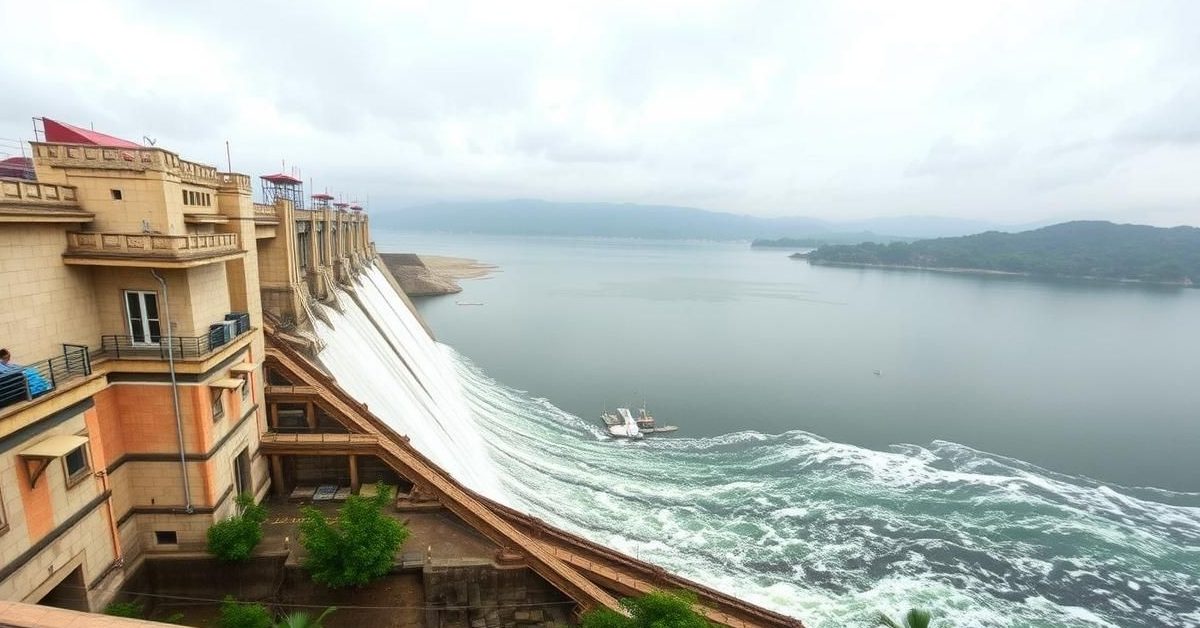India is looking to reform its civil nuclear liability laws to boost international cooperation, while also strengthening ties with Namibia to secure crucial energy and mineral resources.
Reforming India’s Nuclear Energy Sector
India is currently considering significant legal changes to its atomic energy sector. These reforms aim to align the country’s nuclear liability framework with global standards, ease concerns for international investors, and open up the civil nuclear business.
One key area of focus is the Civil Liability for Nuclear Damage Act of 2010 (CLNDA). About 11 amendments are being considered for this act, with two being particularly crucial. These changes are vital to modernizing India’s nuclear energy landscape.
Addressing Supplier Concerns
A major point of contention for international vendors has been Section 17(b) of the CLNDA. This provision allows the operator of a nuclear installation to seek recourse from the supplier if an incident is caused by defects in equipment or substandard services.
International suppliers see this clause as a barrier to investment, leading to no new projects since the Act came into effect. The proposed amendment aims to weaken this specific component, bringing India’s law closer to global norms. Future contracts would likely incorporate recourse rights explicitly in writing, subject to regulatory approval.
Opening Doors for Private and Foreign Players
Another significant reform involves the Atomic Energy Act of 1962. Amendments are planned to allow private corporations, and potentially foreign companies, to operate nuclear power plants in India. Currently, this role is limited to state-owned entities like NPCIL or NTPC Ltd.
These changes could also pave the way for foreign companies to hold minority equity stakes in upcoming nuclear projects. The goal is to stimulate economic growth and investment in the sector, marking a pivotal shift in India’s nuclear energy policy.
Global Alignment
The CLNDA reforms are designed to bring India’s nuclear liability framework into compliance with the 1997 Convention on Supplementary Compensation for Nuclear Damage (CSC). India signed the CSC in 2010 and ratified it in 2016, becoming a State Party.
These legislative modifications are seen as an economic necessity to attract more international collaboration and investment in the nuclear power sector. Achieving political consensus to pass these critical changes remains a key challenge.
India-Namibia Relations: A Strategic Partnership
India’s outreach to Namibia is a strategic move, building on a long history of friendship and shared post-colonial experiences. India championed Namibia’s independence at the UN and provided substantial support during its liberation struggle.
Today, this relationship is crucial for India’s energy and digital infrastructure security. It also supports India’s broader engagement with the African continent, focusing on sustainable South-South cooperation.
Securing Critical Minerals
Namibia is a significant global producer of vital minerals, including uranium, lithium, zinc, and rare earth metals. These resources are essential for India’s rapidly growing industrial and technological needs, driving a mutually beneficial partnership in energy security and critical mineral supply.
The economic and commercial ties between the two nations have seen considerable growth. Two-way trade surged to $654 million between April and November 2023, showcasing a strong increase. India’s investments in Namibia, primarily in mineral resources like zinc and diamond processing, exceed $800 million.
Capacity Building and Digital Infrastructure
Beyond minerals, India has invested in Namibia’s human capital and development. A notable contribution includes the establishment of an ‘India Wing’ at the University of Namibia’s Ongwediwa campus. India also provides training to Namibian army personnel, diplomats, public health officials, and cricketers through its Indian Technical and Economic Cooperation (ITEC) program.
This engagement aligns with India’s broader strategy of promoting digital public infrastructure abroad and strengthening its partnerships across the African continent.
- India’s nuclear liability reforms aim to attract foreign investment by aligning with international standards like the CSC.
- Key changes include weakening supplier recourse clauses and allowing private and foreign operators in the nuclear sector.
- India’s strategic partnership with Namibia is crucial for securing critical minerals such as uranium, lithium, and rare earths.
- Bilateral trade between India and Namibia has significantly increased, with India also investing heavily in Namibia’s mineral sector.
- India supports Namibia’s capacity building through educational initiatives and training programs.
These two distinct but equally important areas highlight India’s proactive foreign and domestic policy efforts to secure its future energy needs and strengthen its global strategic partnerships.















